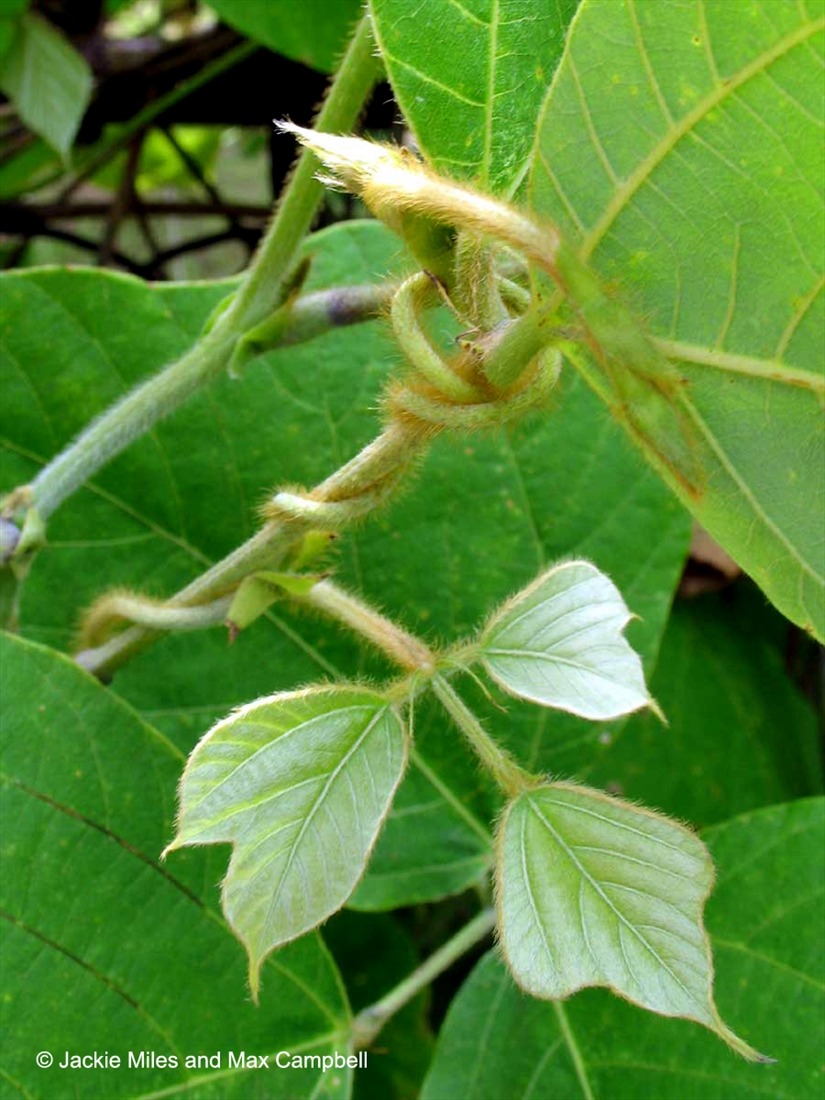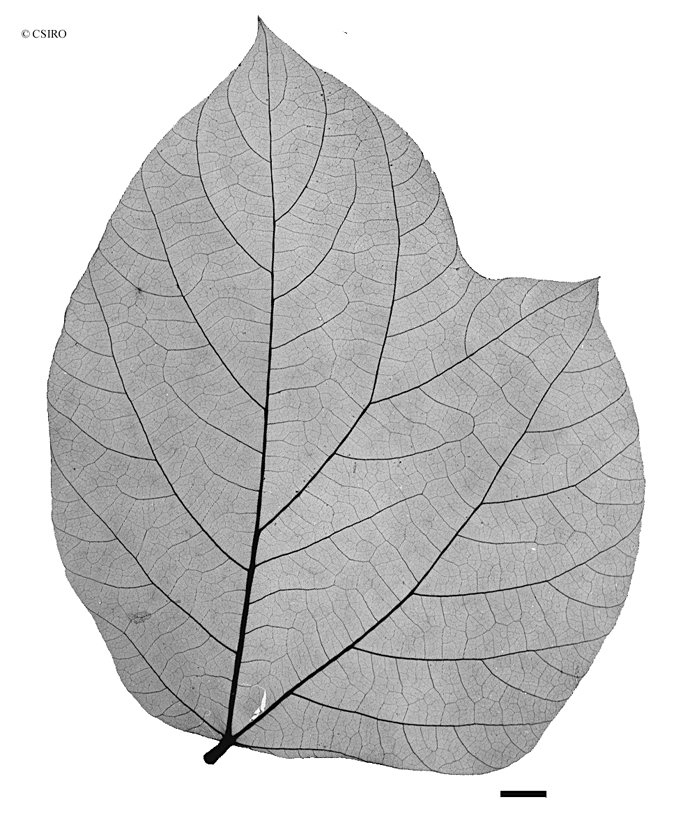Australian Tropical Rainforest Plants - Online edition
Pueraria lobata (Willd.) Ohwi



Ohwi, J. (1947) Bulletin of the Tokyo Science Museum : 16(1947).
Kudzu
A slender vine not exceeding a stem diameter of 2 cm.
Leaflet blades rather large, about 16-23 x 12-20 cm, the middle leaflet slightly larger than the laterals. Margins variable, sometimes with one or two large teeth or lobes. Both the upper and lower surfaces of the leaflet blades clothed in pale appressed hairs. Lower surfaces of the leaflet blades much paler than the upper surfaces. Lateral leaflet stalks about 4-7 mm long, middle leaflet stalks about 40-60 mm long. Stipules peltate, about 12-15 mm long, hairy, longitudinally veined. Stipels about 10 mm long.
Inflorescences about 10-25 cm long. Flowers borne in groups of 3, each flower on a pedicel about 4-10 mm long. Calyx clothed in soft appressed hairs, calyx about 10-14 mm long. Standard about 14 x 15 mm, mainly purple except for a well defined yellow area at the base. Wings and keel about 16 mm long. Fide Hacker (1990).
Fruits up to 9 x 1-1.2 cm, densely clothed in rust coloured hairs.
Features not available.
An introduced species originally from Asia, now naturalised in NT, CYP, NEQ, CEQ and southwards as far as north-eastern New South Wales. Altitudinal range in NEQ from near sea level to 50 m. Usually grows on agricultural land, sometimes on rain forest margins. Also naturalised in New Guinea, other parts of Malesia and the Pacific islands.
Treated as Pueraria montana var. lobata in Qld and as Pueraria lobata var. lobata in the NT.
Introduced as a forage for the wet tropics and also used as a cover crop to stop erosion, but not now widely planted. Very palatable. Sensitive to low or frequent grazing. Hacker (1990).
Pueraria montana var. lobata (Willd.) Maesen & S.M.Almeida ex Sanjappa & Predeep, Sanjappa, M. (1992) Legumes of India : 288.Pueraria lobata (Willd.) Ohwi var. lobata, Agricultural University Wageningen Papers 85-1: 43(1985). Dolichos lobatus Willd., Sp. Pl. 3: 1047(), Type: unknown.





